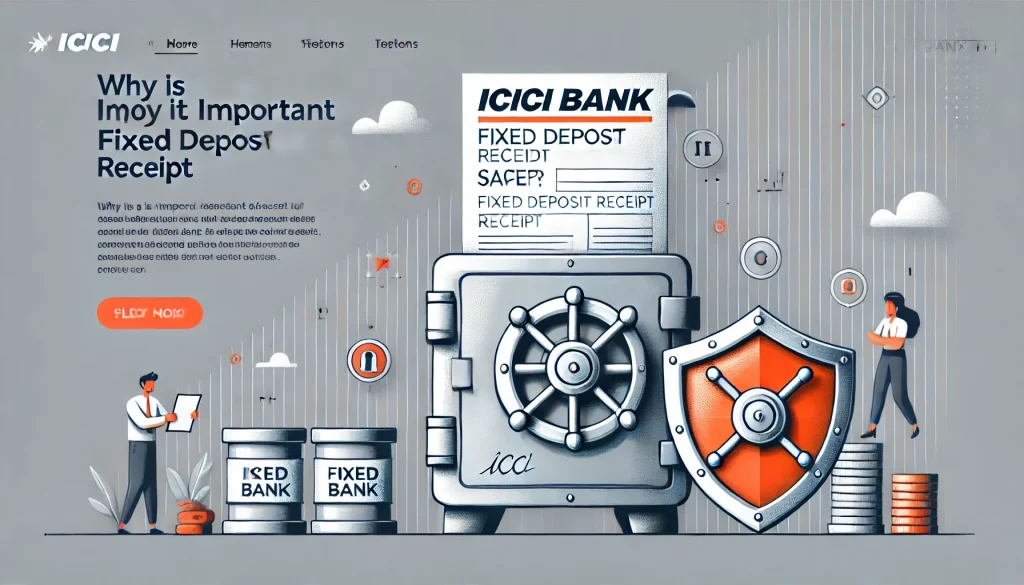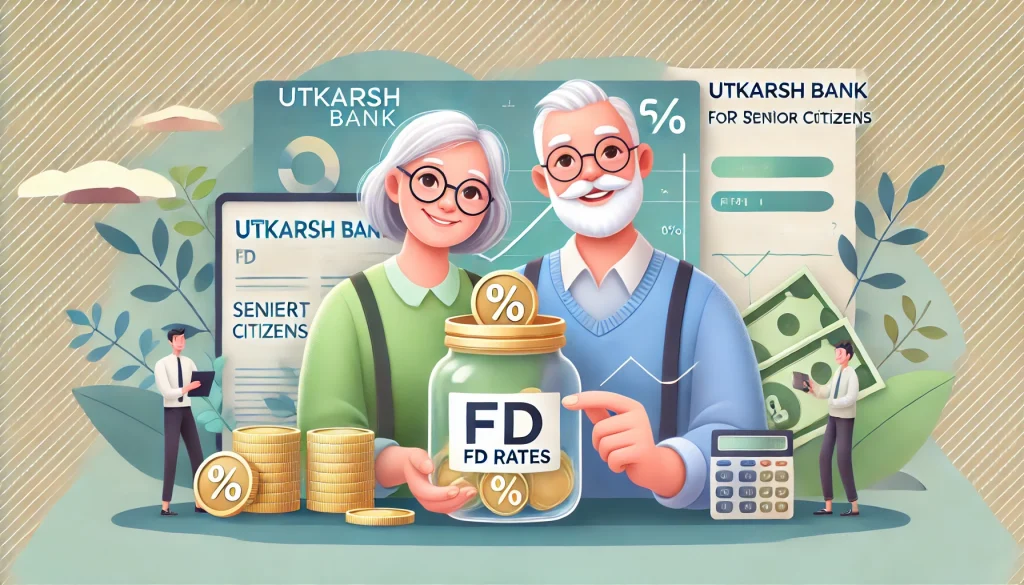
A tax-saving FD scheme is a type of fixed deposit scheme offered by most banks and financial institutions in India. It is a popular investment option among risk-averse individuals looking for ways to reduce their taxable income. This scheme offers a tax exemption of up to ₹1.5 lakh under Section 80C of the Income Tax Act. Unlike Regular FD schemes, these schemes are designed with a lock-in period of at least 5 years, allowing no premature withdrawals under any circumstance except the depositor’s death. Although depositors cannot withdraw their funds, they can avail a high-yielding, tax-saving FD interest rate.
Here is a comprehensive guide to the tax-saving FD and its varying rates for anyone who is looking for a fixed return on their investment along with tax-exemption benefits.
Tax Saving FD Details
| Tenure | 5 years |
| Minimum Amount | ₹100 |
| Maximum Amount | ₹1.5 lakh |
| Interest Rate Range | 5.5% to 7.75% |
| Taxation | Tax Deducted at Source as per Section 80C of the Income Tax Act 1961 |
Top 10 Tax-Saving FD Interest Rate
Here is a list of the top 10 tax-saving FD interest rates that are applicable to deposits made in 2023.
| Bank | General Citizens Rate | Senior Citizens Rate |
| DCB Bank | 7.40% | 7.90% |
| Deutsche Bank | 7.50% | 7.50% |
| RBL Bank | 7.10% | 7.60% |
| HDFC Bank | 7.00% | 7.75% |
| Axis Bank | 7.00% | 7.75% |
| IDFC Bank | 7.00% | 7.50% |
| State Bank of India | 6.50% | 7.50% |
| Punjab National Bank | 6.50% | 7.50% |
| Bank of Baroda | 6.50% | 7.50% |
| Kotak Mahindra Bank | 6.20% | 6.70% |
Top 10 Small Finance Tax-Saving FD Interest Rates
Check out the top 10 Small Finance tax-saving FD rates that prevail in 2023.
| Bank | General Citizens Rate | Senior Citizens Rate |
| Suryoday Small Finance Bank | 8.25% | 8.75% |
| Fincare Small Finance Bank | 8.00% | 8.60% |
| Utkarsh Small Finance Bank | 7.50% | 8.10% |
| AU Small Finance Bank | 7.25% | 7.75% |
| Equitas Small Finance Bank | 7.25% | 7.45% |
| Capital Small Finance Bank | 7.10% | 7.60% |
| Unity Small Finance Bank | 7.00% | 7.50% |
| Ujjivan Small Finance Bank | 6.50% | 7.00% |
| Jana Small Finance Bank | 6.50% | 7.00% |
| ESAF Small Finance Bank | 6.25% | 6.75% |
Taxation on Interest Earned on FD
According to the Income Tax Act 1961, the interest income earned from investing in an FD scheme is taxable at a slab rate applicable to a depositor. All FD schemes are charged under Tax Deducted at Source (TDS). However, a tax-saving FD scheme is the only type of FD investment that allows all depositors to claim tax deductions up to a maximum of ₹1.5 lakhs.
A depositor/investor can avoid taxation on the amount of interest earned from an FD investment. As per the Income Tax rules, an FD account holder is not liable to pay tax if the total interest income earned in a financial year is less than ₹10,000.
Things to Consider Before Investing in Tax-Saving FD
While choosing the right scheme for an FD investment is tough, there are a few factors to consider to simplify the process. Let’s now take a closer look at a list of such things that you should consider before investing in a 5-year fixed deposit tax-free scheme offered by a bank.
1. Eligibility
Tax Saving FD schemes are applicable to Indian residents and members of Hindu Undivided Families of all age groups, including minors. Non-resident Indians or other entities are not eligible to apply for such schemes. However, a minor has to jointly apply for a tax saving scheme with their guardian.
2. Deposit Amount
The minimum deposit amount required to book a tax-saving FD scheme varies for different banks and financial institutions. You can start this type of FD account with a minimum of ₹100. On the other hand, there is a fixed maximum deposit amount, which is ₹1.5 lakh.
3. Tenure
Tax-saving FD schemes have a fixed lock-in period of 5 years. During this tenure, any investor/depositor is not allowed to withdraw their FD investment before maturity. Such a tenure ensures investors earn long-term returns as well as tax benefits.
4. Overdraft Facility
Unlike other schemes, the only downside of applying for a tax-saving FD scheme is that investors/depositors can not avail loans/overdrafts against FD investments.
5. Investment Mode
Any depositor, who is also an eligible entity, can choose to avail of an attractive, tax-saving FD interest rate by visiting any private or public sector bank in India. They can also book such a scheme from a bank’s official website. However, one cannot book a tax-saving FD scheme from a rural or cooperative bank.
6. Post Office Term Deposit
This type of deposit also provides tax exemptions under Section 80C of the Income Tax Act. An investor has to visit their nearest post office to avail of such benefit. The investments made in such deposits are also transferable from one post office to another.
7. Tax Deducted at Source
Although the interest that depositors receive on a timely basis is taxable under TDS, one can choose to avoid paying the taxed amount. This can be done by filling out Form 15G/15H and submitting it to the bank.
Conclusion
The tax-saving FD interest rate varies for different banks and financial institutions. Moreover, these rates are subject to change and are associated with various terms and conditions. Before investing in any tax saving scheme, verify its interest rates with a bank representative and go through all the terms and conditions carefully.
FAQs
Disclaimer
This article is solely for educational purposes. Stable Money doesn't take any responsibility for the information or claims made in the blog.


